
Hakone: The Serene Mountain Retreat of Japan
Nestled within the heart of Japan, Hakone is a peaceful mountain town renowned for its hot springs, natural beauty, and stunning views of Mount Fuji. Known for its picturesque landscapes, Hakone provides a perfect escape from the bustling city life of Tokyo, which is just a short train ride away. One of Hakone's main attractions is the Owakudani Valley, an active volcanic zone where visitors can witness sulfurous fumes and boiling hot springs. Here, you can enjoy the famous black eggs, boiled in the hot springs, which are said to add seven years to your life. For a more relaxing experience, the town's numerous onsen (hot spring) resorts offer a soothing retreat where you can soak in mineral-rich waters surrounded by nature. Art enthusiasts will find delight in Hakone's museums, such as the Hakone Open-Air Museum. This unique museum combines impressive sculptures with the beauty of the natural surroundings. For those who love history, a visit to the Hakone Shrine, hidden in a dense forest by Lake Ashi, offers a glimpse into Japan's spiritual heritage. A scenic boat cruise on Lake Ashi provides breathtaking views of Mount Fuji, especially on clear days. Hakone is also part of the Fuji-Hakone-Izu National Park, making it a paradise for hikers and nature lovers. The area boasts several well-marked trails that range from easy walks to more challenging treks, each offering stunning vistas of the surrounding landscape. Whether you are seeking relaxation, adventure, or cultural enrichment, Hakone promises an unforgettable experience.
Local tips in Hakone
- Purchase a Hakone Free Pass for unlimited travel on local transportation and discounts at popular attractions.
- Visit Owakudani early in the morning to avoid large crowds and make the most of your experience.
- Stay at a ryokan to experience traditional Japanese hospitality and enjoy private onsen baths.
- Try the kuro-tamago (black eggs) at Owakudani; they are believed to extend your lifespan.
- Check the weather forecast before planning a cruise on Lake Ashi for the best views of Mount Fuji.
Hakone: The Serene Mountain Retreat of Japan
Nestled within the heart of Japan, Hakone is a peaceful mountain town renowned for its hot springs, natural beauty, and stunning views of Mount Fuji. Known for its picturesque landscapes, Hakone provides a perfect escape from the bustling city life of Tokyo, which is just a short train ride away. One of Hakone's main attractions is the Owakudani Valley, an active volcanic zone where visitors can witness sulfurous fumes and boiling hot springs. Here, you can enjoy the famous black eggs, boiled in the hot springs, which are said to add seven years to your life. For a more relaxing experience, the town's numerous onsen (hot spring) resorts offer a soothing retreat where you can soak in mineral-rich waters surrounded by nature. Art enthusiasts will find delight in Hakone's museums, such as the Hakone Open-Air Museum. This unique museum combines impressive sculptures with the beauty of the natural surroundings. For those who love history, a visit to the Hakone Shrine, hidden in a dense forest by Lake Ashi, offers a glimpse into Japan's spiritual heritage. A scenic boat cruise on Lake Ashi provides breathtaking views of Mount Fuji, especially on clear days. Hakone is also part of the Fuji-Hakone-Izu National Park, making it a paradise for hikers and nature lovers. The area boasts several well-marked trails that range from easy walks to more challenging treks, each offering stunning vistas of the surrounding landscape. Whether you are seeking relaxation, adventure, or cultural enrichment, Hakone promises an unforgettable experience.
When is the best time to go to Hakone?
Iconic landmarks you can’t miss
Hakone Shrine
Discover tranquility at Hakone Shrine: iconic torii gate, serene lake views, and ancient cedar forests await your spiritual journey.
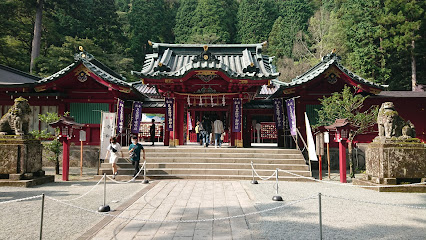
The Hakone Open-Air Museum
Discover modern and contemporary sculpture in a stunning natural setting at Japan's first open-air museum in Hakone.
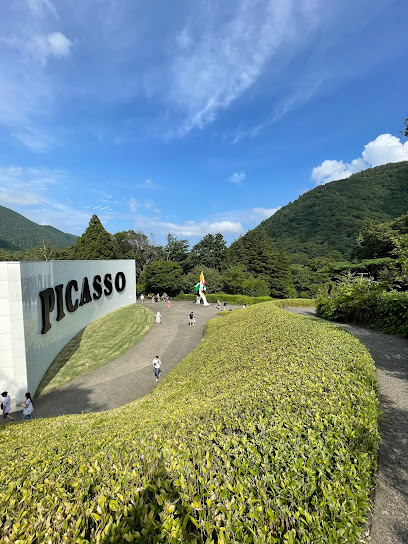
Hakone Venetian Glass Museum (Glass Forest)
Discover exquisite Venetian glass art in a serene Hakone setting. Explore historical masterpieces and modern creations in a charming, garden-filled museum.
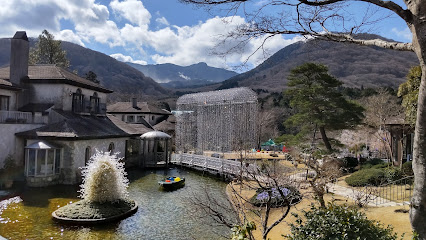
Hakone Checkpoint
Explore a reconstructed Edo-era checkpoint on Lake Ashi, offering historical insights and scenic views in Hakone, Japan.
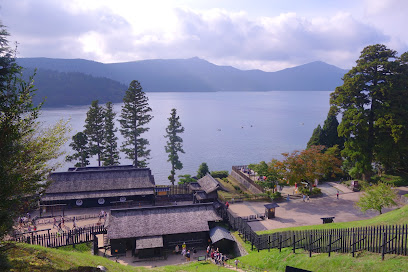
Hakone Gōra Park
Experience Japan's first French-style garden in Hakone, offering seasonal blooms, cultural activities, and serene landscapes for an unforgettable escape.
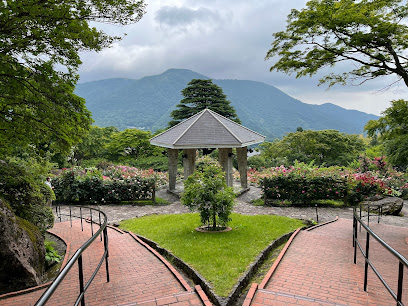
Mt.Taikan Observation Deck
Experience breathtaking panoramic views of Mt. Fuji and Lake Ashinoko from Hakone's must-visit observation deck.
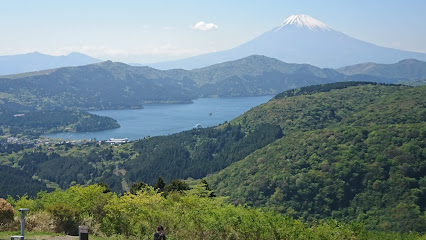
Hakone-en
Explore Hakone's beauty at Hakone-en: scenic lake views, cruises, and mountain ropeway access in a convenient recreational setting.
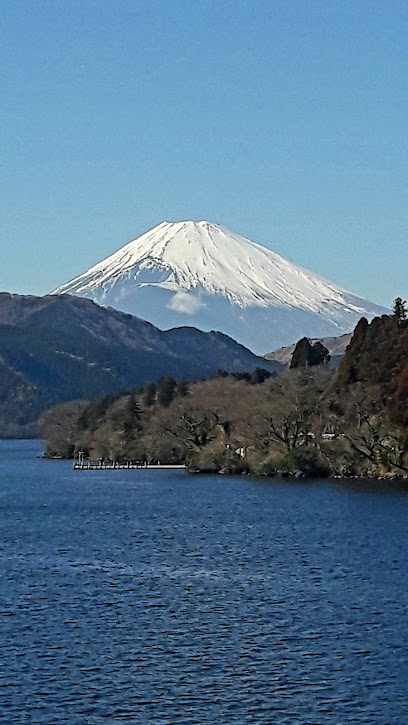
Onshi-Hakone Park
Experience tranquility and imperial history at Onshi-Hakone Park, offering stunning views of Lake Ashi and Mt. Fuji in a blend of garden designs.
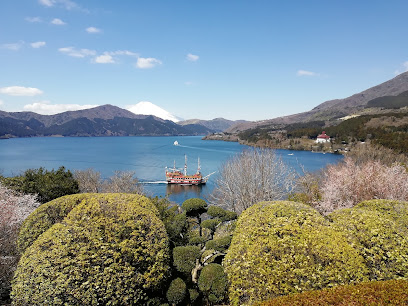
Heiwa no Torii
Iconic lakeside torii gate symbolizing peace, offering stunning views of Lake Ashi and Mount Fuji in Hakone, Japan.
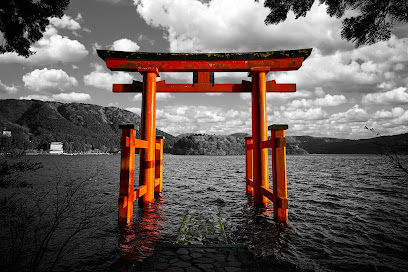
Hakone Botanical Garden of Wetlands
Discover Japan's diverse wetland ecosystems at Hakone Botanical Garden, home to over 1,700 plant species in a serene highland setting.

Hakone Mototsumiya Shrine
Discover Hakone Mototsumiya Shrine: Ascend to serenity, history, and panoramic views atop Mount Komagatake in Hakone.
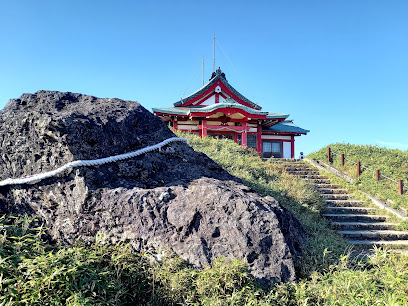
Hakone Museum of Art
Explore the serene beauty and rich cultural heritage at the Hakone Museum of Art, a must-visit destination for art lovers in Japan.
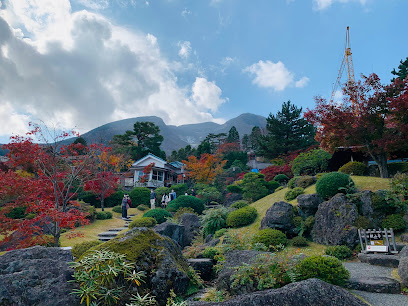
Chisuji Falls
Discover Chisuji Falls in Hakone: a serene escape where a thousand water strands create a mesmerizing natural tapestry amidst lush greenery.
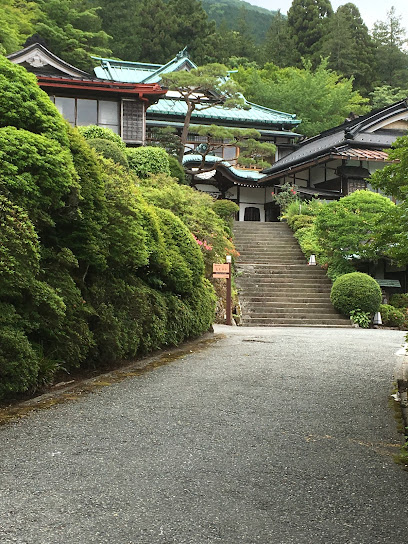
Hien Waterfall
Discover the serene beauty of Hien Waterfall in Hakone, a tranquil escape surrounded by lush nature and calming sounds.
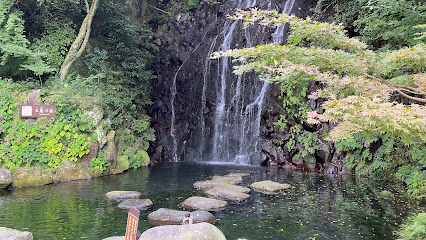
Hakone Town History Museum
Explore Hakone's captivating past at the Hakone Town History Museum, showcasing the region's cultural evolution and hot spring heritage.
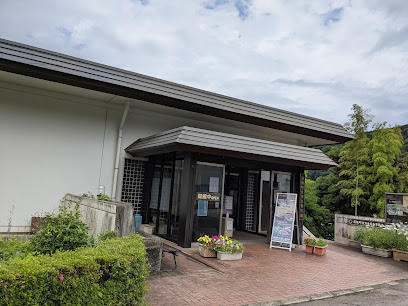
Unmissable attractions to see
Fuji-Q Highland
Discover adventure at Fuji-Q Highland, where thrilling rides meet breathtaking views of Mount Fuji in a family-friendly amusement park.
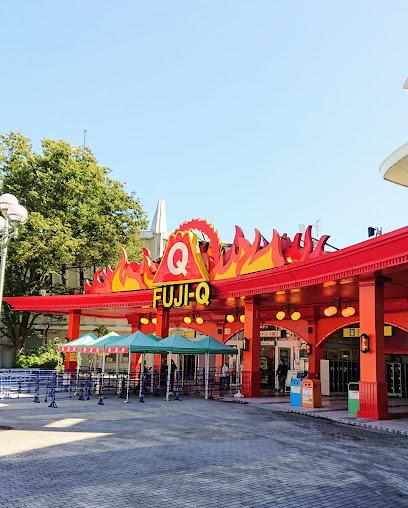
Ebina Service Area (up)
Experience the charm of Ebina Service Area, your perfect stop in Kanagawa for delicious food, shopping, and relaxation on the road.
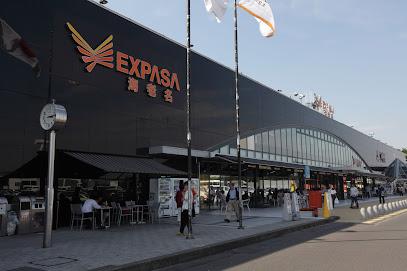
Owakudani
Explore Owakudani, a volcanic marvel in Hakone, Japan, known for its hot springs, breathtaking views, and unique culinary delights.

Mishima Sky Walk
Discover stunning views of Mt. Fuji and the surrounding beauty at Mishima Sky Walk, Japan's longest pedestrian suspension bridge.
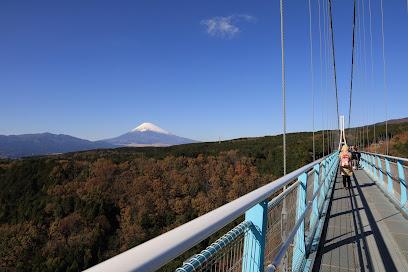
Hakone Shrine
Experience the spiritual serenity and breathtaking beauty of Hakone Shrine, a must-visit Shinto shrine in Japan's scenic Hakone region.

EXPASA Ebina Westbound
Discover the culinary treasures and unique shopping experiences at EXPASA Ebina Westbound, a must-visit rest stop in Kanagawa, Japan.
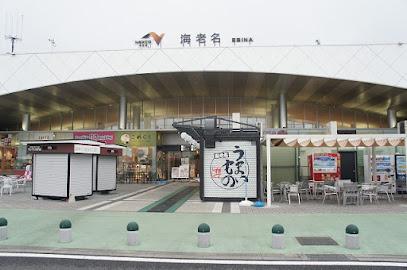
EXPASA Ashigara Parking Area (Down)
Discover EXPASA Ashigara Parking Area, a unique rest stop in Shizuoka with delicious food, shopping, and scenic views to enhance your travel experience.
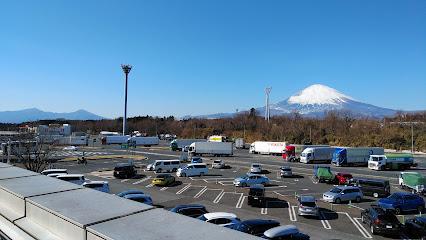
Ashigara Service Area (up)
Experience breathtaking views, delicious local cuisine, and unique souvenirs at Ashigara Service Area, your ideal rest stop in Shizuoka.
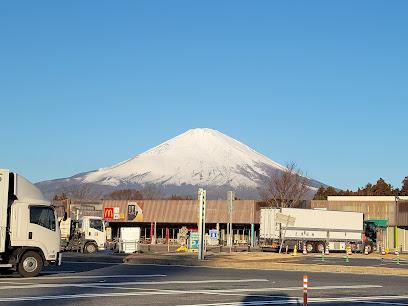
Shiraito Falls
Experience the breathtaking beauty of Shiraito Falls, a serene oasis surrounded by lush nature and rich cultural heritage in Fujinomiya, Japan.

Mount Fuji
Discover Mount Fuji, an iconic mountain peak in Japan offering breathtaking views, rich cultural heritage, and unforgettable outdoor adventures.
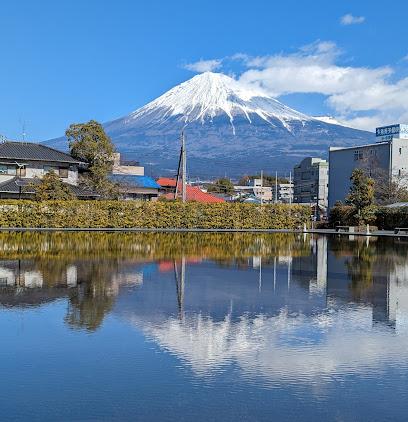
Kinomiya Shrine
Experience the serene beauty of Kinomiya Shrine in Atami, a perfect blend of nature, spirituality, and cultural heritage.
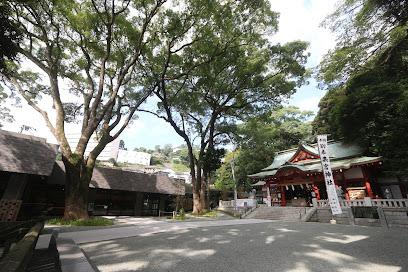
Fujisan Hongu Sengen Taisha Shrine
Explore the serenity and spirituality of Fujisan Hongu Sengen Taisha Shrine, a cultural treasure at the foot of Mount Fuji, blending tradition with breathtaking landscapes.
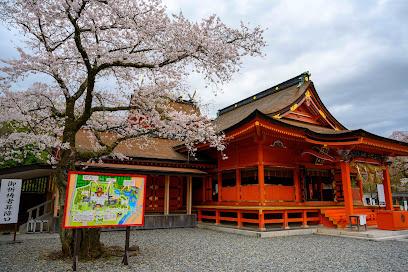
Kawaguchiko Tenjoyama Park
Experience breathtaking views of Mount Fuji, serene landscapes, and outdoor adventures at Kawaguchiko Tenjoyama Park, the perfect destination for nature lovers.
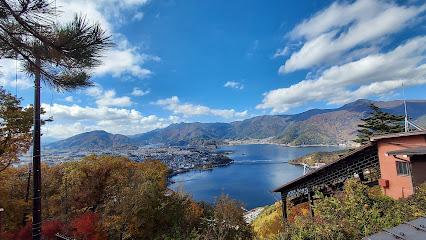
Kanagawa Prefectural Shonan Coast Park
Discover the beauty of Kanagawa Prefectural Shonan Coast Park, where nature meets culture in a breathtaking coastal setting.
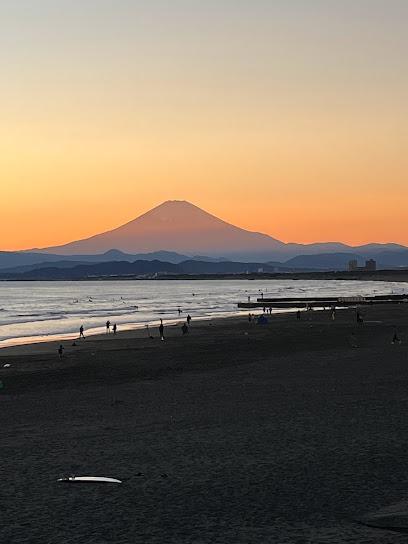
Onsen - Fuji Yurari Hot Spring
Experience tranquility at Fuji Yurari Hot Spring, a day-use onsen offering soothing baths, spa services, and stunning views of Mount Fuji.
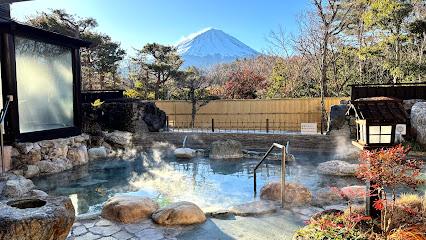
Essential places to dine
La Terrazza
Experience authentic Italian cuisine at La Terrazza with stunning views of Lake Ashi in Hakone.
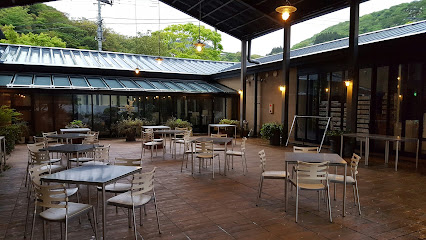
Gyoza Center
Experience authentic Japanese cuisine at Gyoza Center in Hakone—your destination for exquisite dim sum and unforgettable flavors.
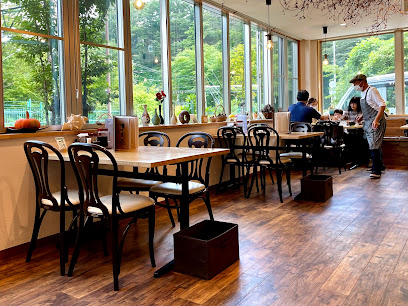
GORA BREWERY&GRILL
Discover Gora Brewery & Grill in Hakone: where exquisite craft beer meets exceptional grilled cuisine amidst breathtaking scenery.
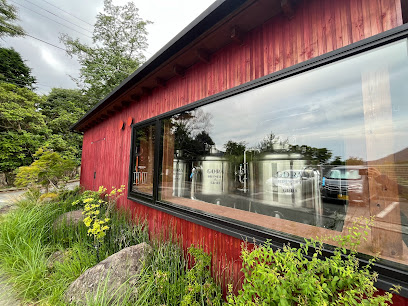
808 Monsmare
Discover the taste of Italy in Hakone at 808 Monsmare - home to delicious wood-fired pizzas and authentic Italian dishes.
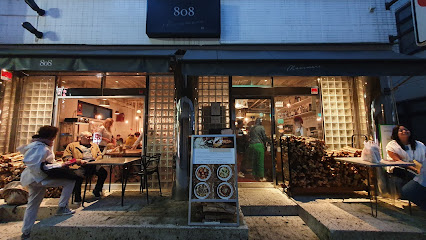
Kinosuke
Discover authentic Japanese cuisine at Kinosuke in Hakone – where tradition meets flavor amidst stunning natural beauty.
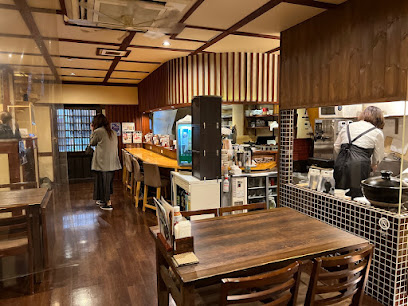
Itoh Dining by Nobu
Experience an exquisite blend of traditional Japanese cuisine and modern teppanyaki artistry at Itoh Dining by Nobu in Hakone.
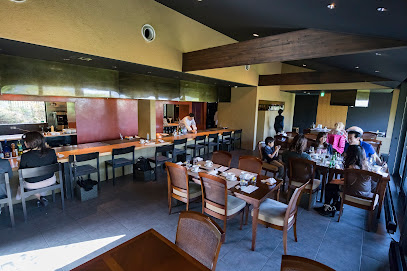
Box Burger Hakone
Discover the ultimate burger experience at Box Burger Hakone, where gourmet meets comfort in the heart of Japan's scenic beauty.
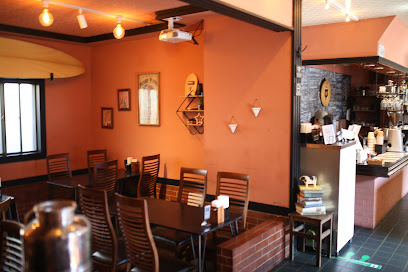
Hakone Karaage Karatto
Discover delicious chicken dishes at Hakone Karaage Karatto - where flavor meets tranquility in beautiful Motohakone.
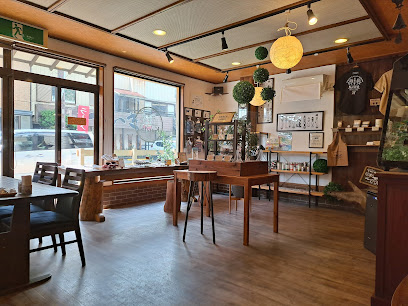
Gin No Ho
Discover authentic Japanese flavors at Gin No Ho in Hakone's scenic Sengokuhara region – where tradition meets culinary excellence.
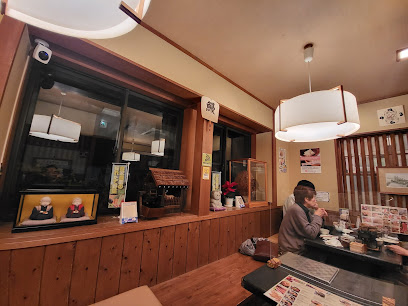
Futaba (Japanese food)
Experience authentic Japanese cuisine at Futaba in Hakone – where tradition meets flavor amidst breathtaking scenery.
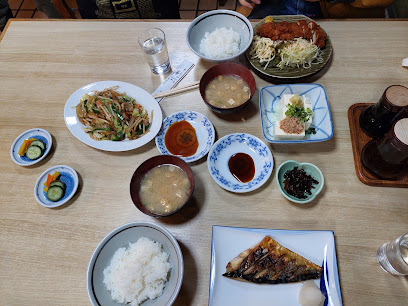
Togendai View Restaurant
Experience authentic Japanese cuisine at Togendai View Restaurant while enjoying stunning views of Lake Ashi in beautiful Hakone.
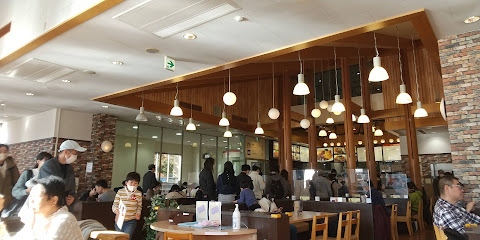
Hakone Kappei
Experience authentic sushi in Hakone at Hakone Kappei - where fresh ingredients meet traditional Japanese craftsmanship.
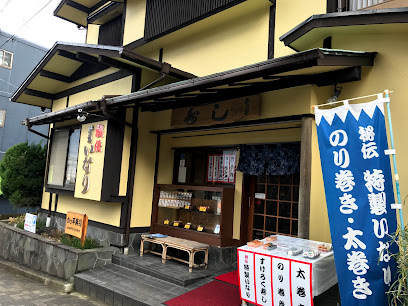
Takeyabu
Discover the art of handmade soba noodles at Takeyabu in Hakone - where tradition meets taste in a serene setting.
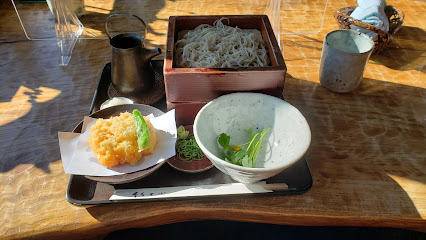
Restaurant Omoto
Discover exquisite Western cuisine amidst the serene beauty of Hakone at Restaurant Omoto.
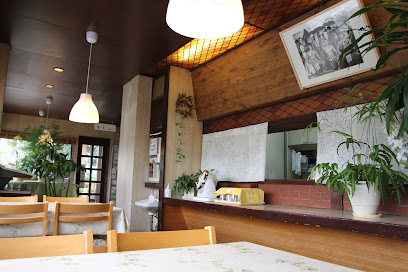
Dining Yamaboshi
Experience the perfect fusion of Italian and Japanese cuisine at Dining Yamaboshi in Hakone's serene Sengokuhara district.
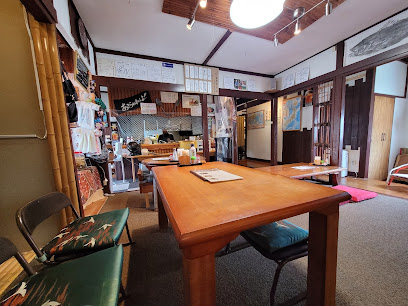
Markets, malls and hidden boutiques
Hakone Sekisho Tabimonogatarikan
Discover unique souvenirs and local culture at Hakone Sekisho Tabimonogatarikan, an essential stop for tourists in Hakone, Japan.
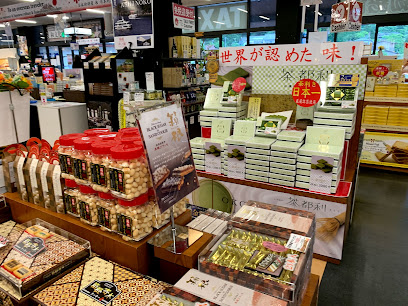
Evangelion Store
Explore the Evangelion Store in Hakone, a haven for anime enthusiasts filled with exclusive merchandise and collectibles from the iconic series.
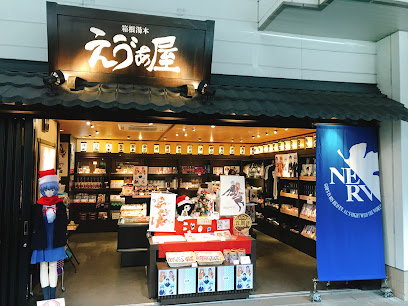
Kikukawa Candy Shop
Discover the essence of Japanese culture through exquisite sweets at Kikukawa Candy Shop in Hakone, a true gem for confectionery lovers.
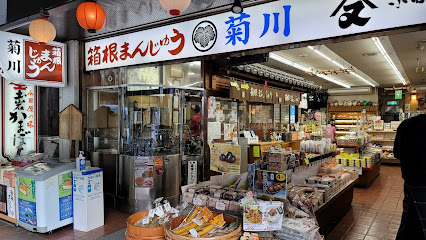
箱根登山名産店 箱根の市
Discover unique local crafts and delicacies at Hakone's charming Souvenir Store, perfect for capturing the essence of your travels.
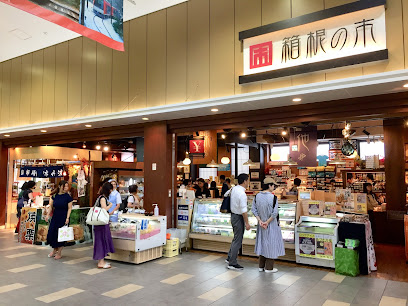
Maruyama Bussan
Explore Maruyama Bussan in Hakone for unique Japanese souvenirs and handcrafted treasures, perfect for capturing the essence of your journey.
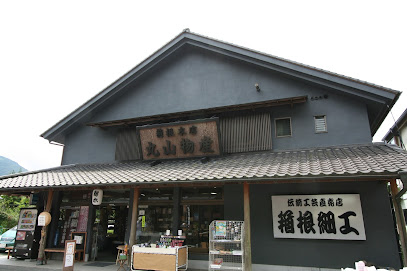
Hakone Rusk
Discover the sweet taste of Hakone at Hakone Rusk, where crispy rusks and delightful pastries await in a serene setting.
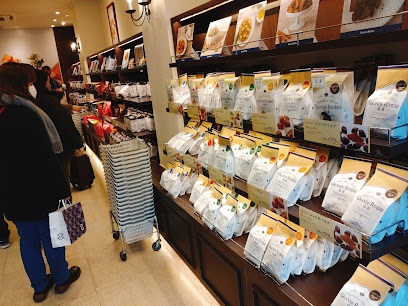
Sugiyohoen Hakoneyumototen
Explore Sugiyohoen Hakoneyumototen in Hakone for a delightful selection of honey and unique souvenirs that capture the spirit of Japan.
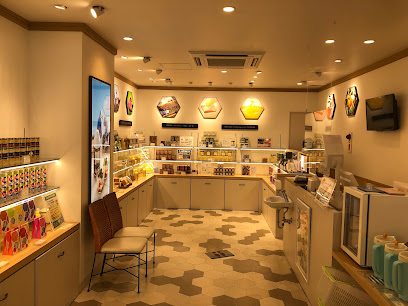
Hakone Yosegi-zaiku Kiro
Explore the elegance of traditional Yosegi-zaiku craftsmanship at Hakone Yosegi-zaiku Kiro, where artistry meets culture in every exquisite piece.
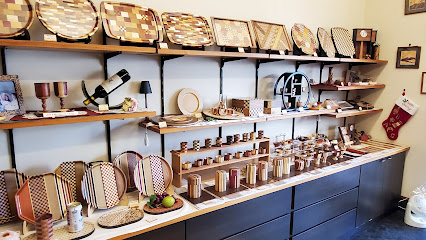
Hakone-yumoto ekimaeomiyagenomitsuki
Explore unique souvenirs and local treats at Hakone-yumoto Ekimaeomiyagenomitsuki, your gateway to Hakone's cultural treasures.
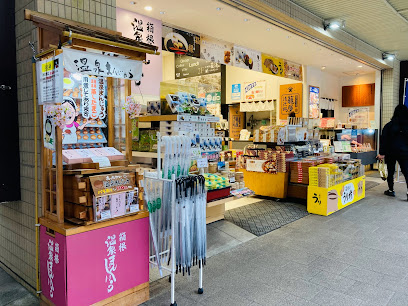
季節の雑貨 折折
Discover seasonal crafts and unique local goods at Oriorii, a charming variety store in the heart of Hakone, Japan.
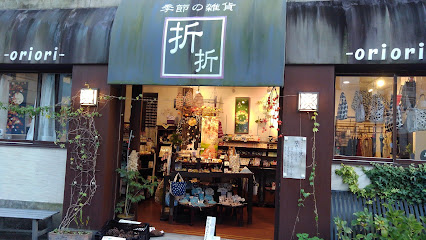
Jyokamachi Pudding Main Store
Indulge in delectable puddings and pastries at Jyokamachi Pudding Main Store, a sweet haven in the heart of Hakone, Japan.
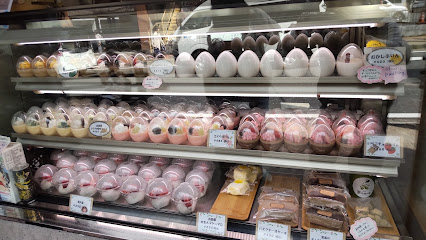
田中屋土産店
Explore the charm of Japan at 田中屋土産店 in Hakone, where unique souvenirs and local delights await every traveler.
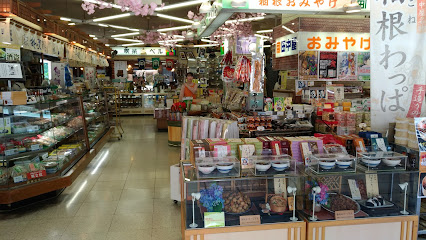
Fukuzumiya
Discover the charm of traditional Japanese souvenirs at Fukuzumiya, a unique shopping experience in the heart of Hakone.
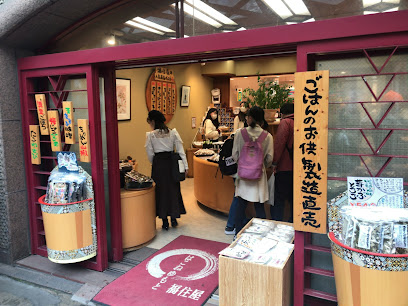
Marukiya
Explore Marukiya in Hakone, your ultimate destination for authentic souvenirs and local delicacies that capture the essence of Japan.
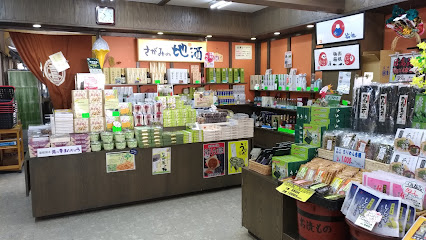
Hakone Maruyama (Wood Inlay Handicraft Store)
Discover exquisite wood inlay handicrafts at Hakone Maruyama, a must-visit store in the picturesque town of Hakone, Japan.
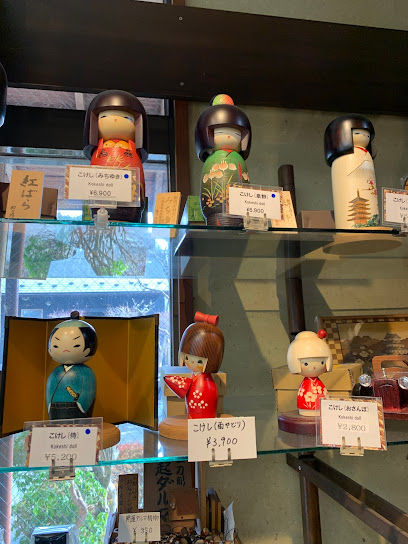
Essential bars & hidden hideouts
GORA BREWERY&GRILL
Explore the flavors of Hakone at Gora Brewery & Grill, where handcrafted beers meet gourmet dining amidst breathtaking scenery.
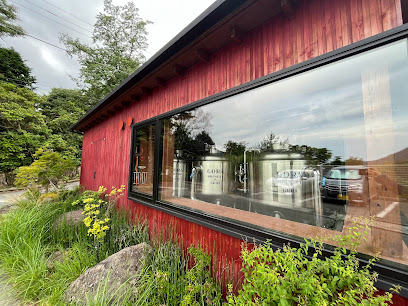
808 Monsmare
Experience the best of Italian cuisine in Hakone at 808 Monsmare, where authentic flavors meet breathtaking views.
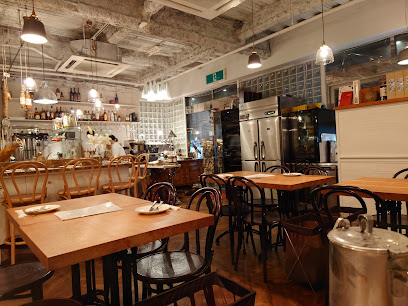
Box Burger Hakone
Discover gourmet burgers in the serene landscapes of Hakone at Box Burger, where every bite is a flavorful adventure.
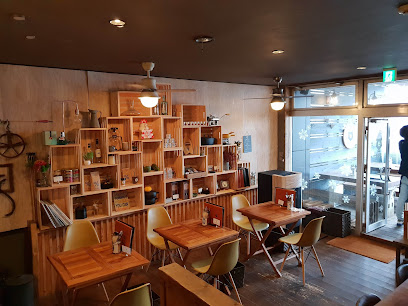
HAKONE TENT Bar
Experience the charm of Hakone at HAKONE TENT Bar, where local flavors meet a cozy atmosphere for an unforgettable night out.
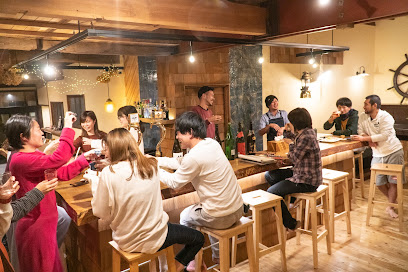
Karuta
Experience authentic Japanese cuisine at Karuta in Hakone, where traditional flavors meet a cozy dining atmosphere.
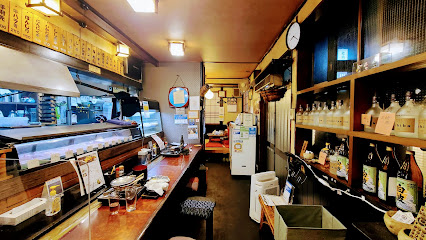
Bar Hotel Hakone Kazan
Experience the perfect fusion of bar culture and boutique hotel charm at Bar Hotel Hakone Kazan, your gateway to Hakone's beauty.
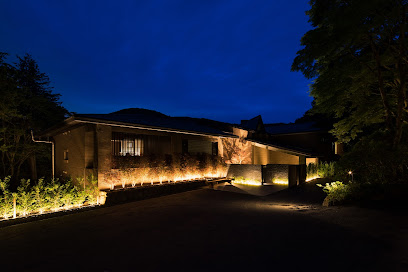
BOX BURGER 箱根湯本店
Discover the ultimate burger experience in Hakone at BOX BURGER, where fresh ingredients meet gourmet flavors in a vibrant setting.
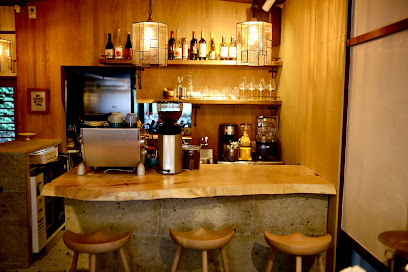
Hakone Kitchen & Bar
Experience authentic Japanese izakaya dining at Hakone Kitchen & Bar, where delightful flavors and a cozy atmosphere meet in the scenic Gora area of Hakone.
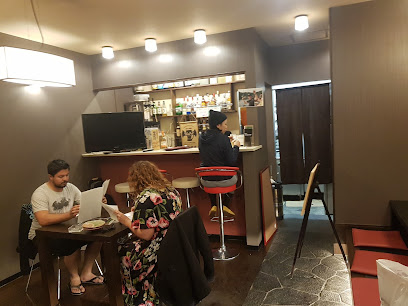
PUB STOP Pizza & Bar
Experience the best pizza and beer in Gora, Hakone at PUB STOP Pizza & Bar, where flavor meets a vibrant atmosphere.
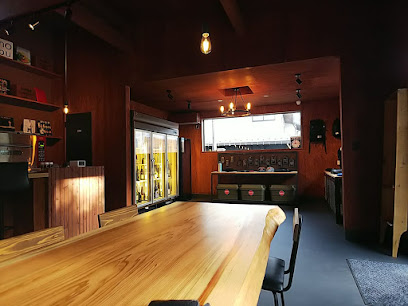
鶏とハイボール フライングチキン
Discover the essence of Japanese izakaya at 鶏とハイボール フライングチキン in Hakone, where delicious chicken dishes meet refreshing highballs.
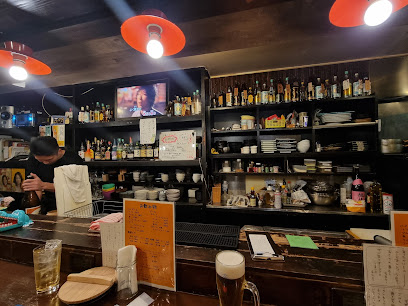
Riverside Kitchen & Bar
Experience the perfect blend of local flavors and stunning riverside views at Riverside Kitchen & Bar in Hakone, Japan.
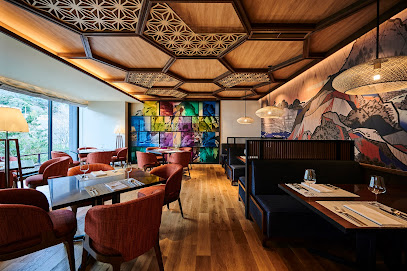
Pub Ochiai
Discover the charm of Pub Ochiai in Hakone, where authentic izakaya dining meets a vibrant pub atmosphere, perfect for food lovers.
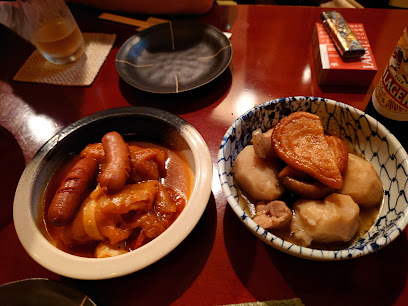
snack witch
Discover Snack Witch in Hakone, a delightful restaurant offering an array of delicious local dishes in a cozy atmosphere.
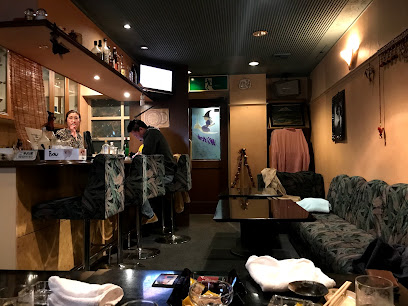
スナック鼓祥
Discover the perfect blend of modern izakaya dining and karaoke at スナック鼓祥 in Hakone, where unforgettable nights await.
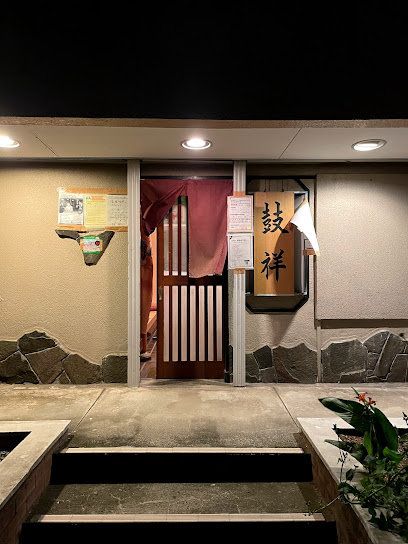
Local Phrases about Hakone
-
- Helloこんにちは
[Kon'nichiwa] - Goodbyeさようなら
[Sayōnara] - Yesはい
[Hai] - Noいいえ
[Īe] - Please/You're welcomeどうぞ
[Dōzo] - Thank youありがとう
[Arigatō] - Excuse me/Sorryすみません
[Sumimasen] - How are you?お元気ですか?
[O-genki desu ka?] - Fine. And you?元気です。あなたは?
[Genki desu. Anata wa?] - Do you speak English?英語を話せますか?
[Eigo o hanasemasu ka?] - I don't understandわかりません
[Wakarimasen]
- Helloこんにちは
-
- I'd like to see the menu, pleaseメニューを見せてください
[Menyū o misete kudasai] - I don't eat meat肉を食べません
[Niku o tabemasen] - Cheers!乾杯!
[Kanpai!] - I would like to pay, pleaseお会計をお願いします
[O-kaikai o onegaishimasu]
- I'd like to see the menu, pleaseメニューを見せてください
-
- Help!助けて!
[Tasukete!] - Go away!去って!
[Satte!] - Call the Police!警察を呼んで!
[Keisatsu o yonde!] - Call a doctor!医者を呼んで!
[Isha o yonde!] - I'm lost道に迷っています
[Michi ni mayotte imasu] - I'm ill具合が悪いです
[Guai ga warui desu]
- Help!助けて!
-
- I'd like to buy...買いたいです...
[Kaitai desu...] - I'm just looking見てるだけです
[Miteru dake desu] - How much is it?いくらですか?
[Ikura desu ka?] - That's too expensiveそれは高すぎます
[Sore wa takasugimasu] - Can you lower the price?値段を下げてもらえますか?
[Nedan o sagete moraemasu ka?]
- I'd like to buy...買いたいです...
-
- What time is it?今何時ですか?
[Ima nanji desu ka?] - It's one o'clock一時です
[Ichiji desu] - Half past (10)十時半です
[Jūji han desu] - Morning朝
[Asa] - Afternoon午後
[Gogo] - Evening夕方
[Yuugata] - Yesterday昨日
[Kinō] - Today今日
[Kyō] - Tomorrow明日
[Ashita] - 1一
[Ichi] - 2二
[Ni] - 3三
[San] - 4四
[Shi] - 5五
[Go] - 6六
[Roku] - 7七
[Nana] - 8八
[Hachi] - 9九
[Kyū] - 10十
[Jū]
- What time is it?今何時ですか?
-
- Where's a/the...?...はどこですか?
[...wa doko desu ka?] - What's the address?住所は何ですか?
[Jūsho wa nan desu ka?] - Can you show me (on the map)?(地図で)見せていただけますか?
[(Chizu de) misete itadakemasu ka?] - When's the next (bus)?次の(バス)はいつですか?
[Tsugi no (basu) wa itsu desu ka?] - A ticket (to ....)チケット(まで)
[Chiketto (made)]
- Where's a/the...?...はどこですか?
History of Hakone
-
Hakone has been a significant part of Japan's history since ancient times. It is mentioned in the Nara period chronicles, highlighting its importance as a strategic checkpoint and its natural beauty. The area was known for its hot springs and scenic views, attracting visitors from all over Japan.
-
During the Edo period (1603-1868), Hakone Sekisho (Hakone Checkpoint) was established as one of the most important checkpoints on the Tōkaidō road, which connected Edo (modern-day Tokyo) to Kyoto. The checkpoint was used to control traffic and prevent the movement of weapons and unauthorized people. Today, the Hakone Sekisho has been restored and serves as a museum, offering a glimpse into the region's past.
-
In 1854, Commodore Matthew Perry of the United States Navy visited Japan, leading to the end of Japan's isolationist policy. Hakone played an indirect role in this transformation, as it was a popular retreat for high-ranking officials who were involved in the negotiations and subsequent modernization of Japan.
-
Established in 1969, the Hakone Open-Air Museum was Japan's first open-air museum. It showcases a diverse collection of sculptures set against the stunning backdrop of the Hakone mountains. The museum represents the region's commitment to blending cultural enrichment with natural beauty.
-
Hakone is renowned for its onsen (hot springs), which have been a part of Japanese culture for centuries. The area's volcanic activity has blessed it with numerous hot springs, making it a prime destination for relaxation and therapeutic baths. Many traditional ryokan (Japanese inns) in Hakone offer onsen facilities, providing visitors with a unique cultural experience.
-
Hakone is home to Hakone Shrine, also known as Hakone Gongen, which has been a significant spiritual site since the Nara period. The shrine is dedicated to the mountain deities and plays a crucial role in the region's Shinto heritage. The annual Hakone Gongen Festival attracts numerous visitors who come to pay their respects and participate in traditional rituals.
-
The Hakone Ekiden is one of Japan's most famous long-distance relay races, held annually on January 2nd and 3rd. It covers a distance of approximately 217.9 kilometers between Tokyo and Hakone. The race has a deep cultural significance and is a major event in the Japanese sporting calendar, drawing massive viewership and participation.
Hakone Essentials
-
Hakone is easily accessible from Tokyo. The most convenient way is to take the Odakyu Limited Express 'Romancecar' from Shinjuku Station, which takes about 85 minutes. Alternatively, you can take the JR Tokaido Shinkansen from Tokyo Station to Odawara Station, and then transfer to the Hakone Tozan Railway, which will take you into Hakone. The journey from Tokyo to Hakone generally takes around 2 hours.
-
Hakone has a well-integrated transportation system that includes trains, buses, and boats. The Hakone Free Pass offers unlimited travel on designated transportation within the Hakone area, including the Hakone Tozan Railway, Hakone Tozan Bus, Hakone Ropeway, and sightseeing boats on Lake Ashi. Taxis are also available but can be expensive. Renting a car is an option, but parking can be limited in some areas.
-
The official currency in Japan is the Japanese Yen (JPY). Credit and debit cards are widely accepted in larger establishments, but it's advisable to carry cash for smaller shops, local restaurants, and rural areas. ATMs are available but may not always accept foreign cards. Convenience stores like 7-Eleven and FamilyMart usually have ATMs that accept international cards.
-
Hakone is generally a very safe destination for tourists. Crime rates are low, and violent crime is rare. However, as with any tourist destination, it is wise to exercise standard precautions such as not leaving your belongings unattended and avoiding poorly lit areas at night. There are no specific areas in Hakone known for high crime rates targeting tourists.
-
In case of emergency, dial 110 for police and 119 for fire and medical assistance. Most public places have emergency contact information posted. It is highly recommended to have travel insurance that covers medical emergencies. Hakone has several medical facilities and clinics, but for more serious conditions, you may need to travel to a larger hospital in Odawara or Tokyo.
-
Fashion: Do dress modestly, especially when visiting religious sites. Avoid overly casual attire in upscale restaurants. Religion: Do respect local customs and traditions, particularly at temples and shrines. Remove your shoes when entering religious sites. Public Transport: Do be respectful and quiet on public transport. Don't talk loudly or use your phone. Greetings: Do greet people with a slight bow. Handshakes are less common but acceptable in business settings. Eating & Drinking: Do try local delicacies and be open to new foods. Don't tip, as it is not customary in Japan and can be considered rude.
-
To experience Hakone like a local, visit the open-air museum and take a leisurely stroll through the art installations. Enjoy a relaxing soak in one of the many onsens (hot springs) that the area is famous for. Try staying in a ryokan (traditional Japanese inn) for an authentic experience. Don't miss the Hakone Gora Park, where you can participate in traditional Japanese crafts like pottery and glassblowing.
Trending Landmarks in Hakone
-
Hakone Shrine
-
The Hakone Open-Air Museum
-
Hakone Venetian Glass Museum (Glass Forest)
-
Hakone Checkpoint
-
Hakone Gōra Park
-
Mt.Taikan Observation Deck
-
Hakone-en
-
Onshi-Hakone Park
-
Heiwa no Torii
-
Hakone Botanical Garden of Wetlands
-
Hakone Mototsumiya Shrine
-
Hakone Museum of Art
-
Chisuji Falls
-
Hien Waterfall
-
Hakone Town History Museum
Nearby Cities to Hakone
-
Things To Do in Nagoya
-
Things To Do in Kanazawa
-
Things To Do in Kyoto
-
Things To Do in Nara
-
Things To Do in Osaka
-
Things To Do in Hiroshima
-
Things To Do in Fukuoka
-
Things To Do in Pohang
-
Things To Do in Sapporo
-
Things To Do in Ulsan
-
Things To Do in Gyeongju
-
Things To Do in Busan
-
Things To Do in Andong
-
Things To Do in Daegu
-
Things To Do in Chuncheon











